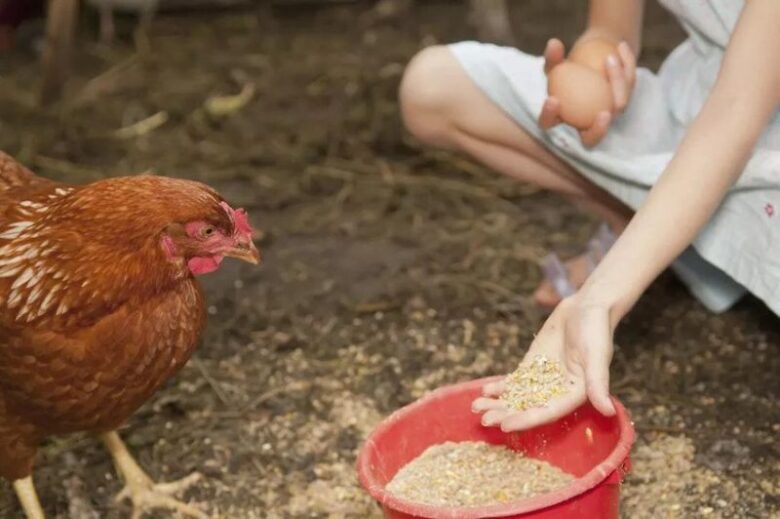If you are raising chicken in your backyard, you have the important task of feeding them with proper food every day. Properly feeding of your chicken will ensure sufficient egg production while, on the other hand, poor feeding can lead to feather picking, deformed eggs, and even reduced egg production.
Let us look at some surprising rules for feeding chickens:
1. Type of feed
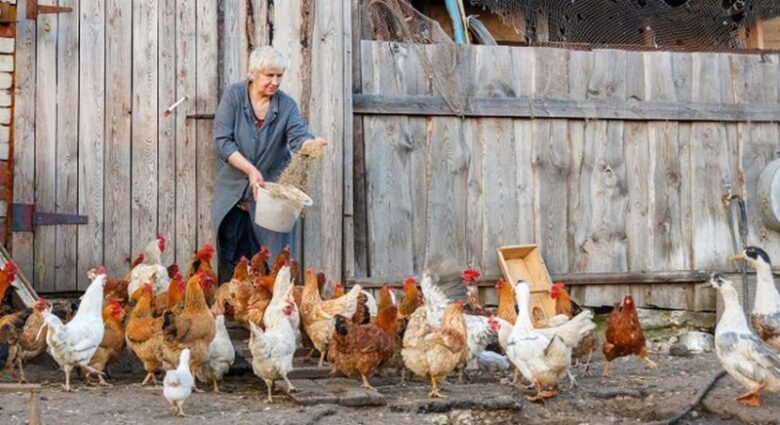
Ensure that the chicken feed you give to your chicken is a high-quality poultry feed, such as pellets.
Chicken at various ages requires different types of feed. Layers need to be fed on layer pellets that contain minerals and proteins that help them maintain egg production. The pellets are made of salt, sunflower seed, wheat, maize, and oats. Grains such as wheat or corn are also an important addition to the chicken diet.
Also, instead of throwing away your kitchen waste such as banana, vegetable, potato, and carrot peels, apple cores, and broccoli, you can feed them to your chicken. Chicken need low salt, low sugar, and whole-grain foods. All chicken feeds should be high in organic, protein, and milled in the United States.
It is important to be aware of the food you are giving to your chicken is GMO or non-GMO. Bear in mind that if your chicken feed on GMO feeds, you will also consume them through the eggs and meat that the chicken will provide. Look out for non-GMO feeds as they are the best for your chicken.
2. How to Feed Chickens
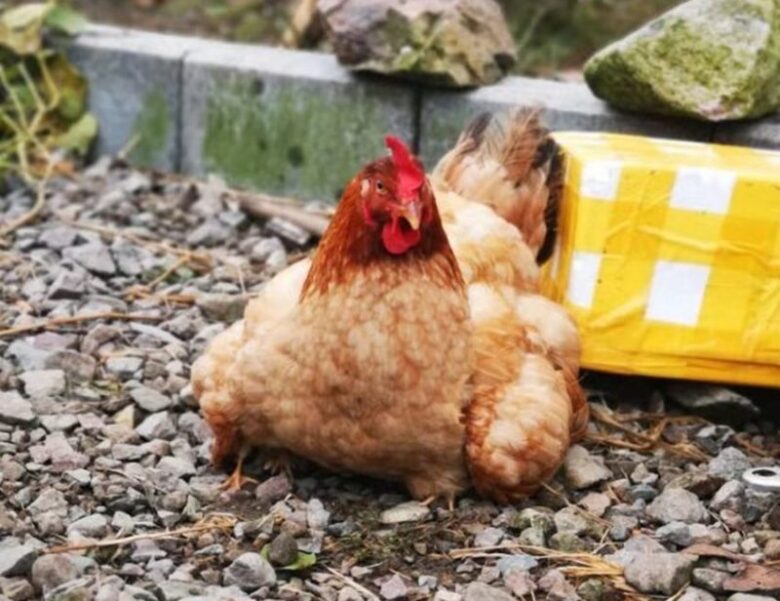
Chickens should be fed twice a day, that is, in the morning and the evening. It is good to put chicken pellets into a chicken trough to keep the pellets dry and clean. Throwing food on the floor is sometimes risky as it may get contaminated with chicken poop.
This will lead to the chicken feeding on harmful substances if one or two chickens are sick. Remember not to leave feeds on troughs overnight as they attract rodents and pests such as mice.
Use a proper feeder
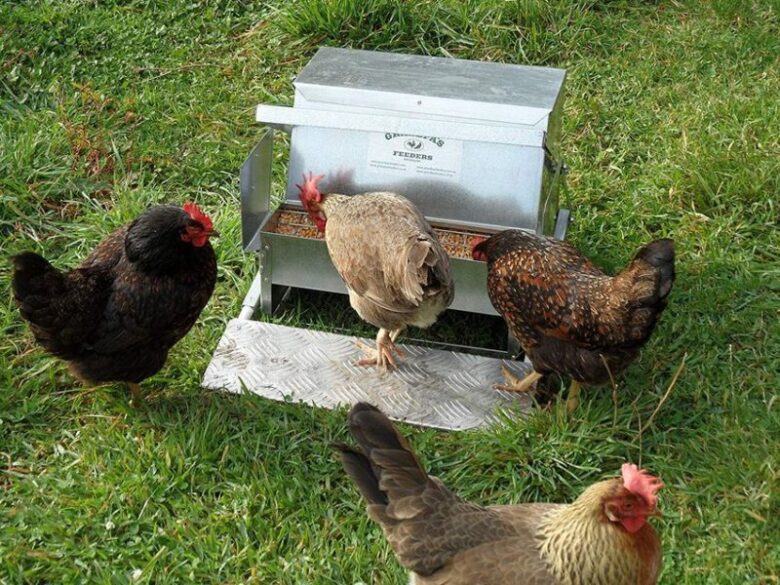
Feeders like Grandpa’s chicken feeder have a sturdy finish made from galvanized steel that endures even the toughest weather conditions. The feeders provide food when the chickens need it without spillage, and it allows several chickens to feed at once.
A standard Grandpa’s chicken feeder holds 20 pounds of feed, which can feed about six chickens over ten days. It is designed for a chicken flock, not exceeding 12 chickens.
The feeder has a built-in anti-flick grill that prevents spillage of food. Grandpa’s chicken feeders have been around for over twenty years; hence, you are guaranteed proper chicken feeding.
Check these feeders on this link: https://www.fromscratchmag.com/grandpas-feeders/
Give them Water
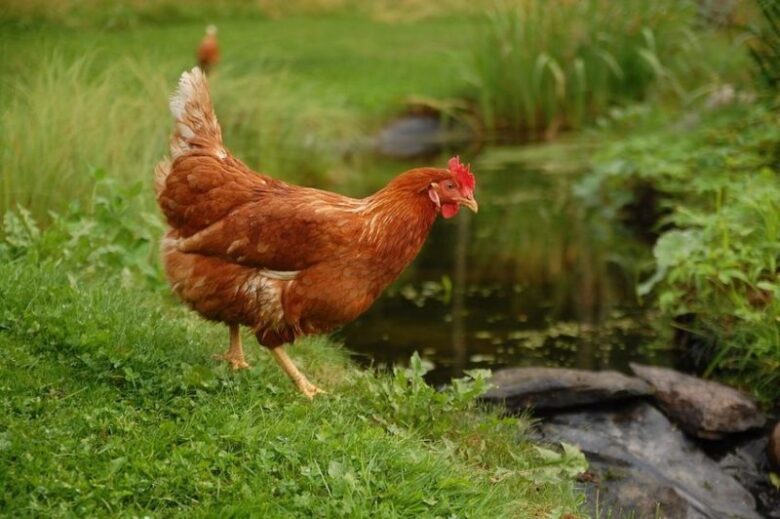
Make sure your chickens have access to fresh and clean water at all times. You can put the water in a container, though the water in containers has the risk of getting contaminated when chickens get into the water. A drinker is a better option as the chickens have no room to step in the water and only access it with their beaks.
Give Them Healthy Treats
Other than the regular chicken feed, you can feed your chicken with pumpkin seeds, apple cores, broccoli, and worms. Chicken can scavenge for worms in the backyard as they love doing this when in free-range.
3. Chicken Love Rocks

Chicken need grit (small rocks) to digest food as they do not have teeth to chew their food. If you have free-range chicken, they may collect some rocks and pebbles on their own, but it is advisable to buy them some from the store.
Make sure you buy the right size of grit; it is usually available in chick and adult size with some containing probiotics. Oyster shells have been used in the past, but they have been too soft to aid in food digestion.
In conclusion, keep the chicken coop as clean and dry as possible as chicken may get sick if they peck on their poop. Also, wash the drinker regularly and change the drinking water daily. Do not introduce a new bird to your flock as it may bring disease to your flock. If you follow these simple rules, you will have a productive and healthy flock.


